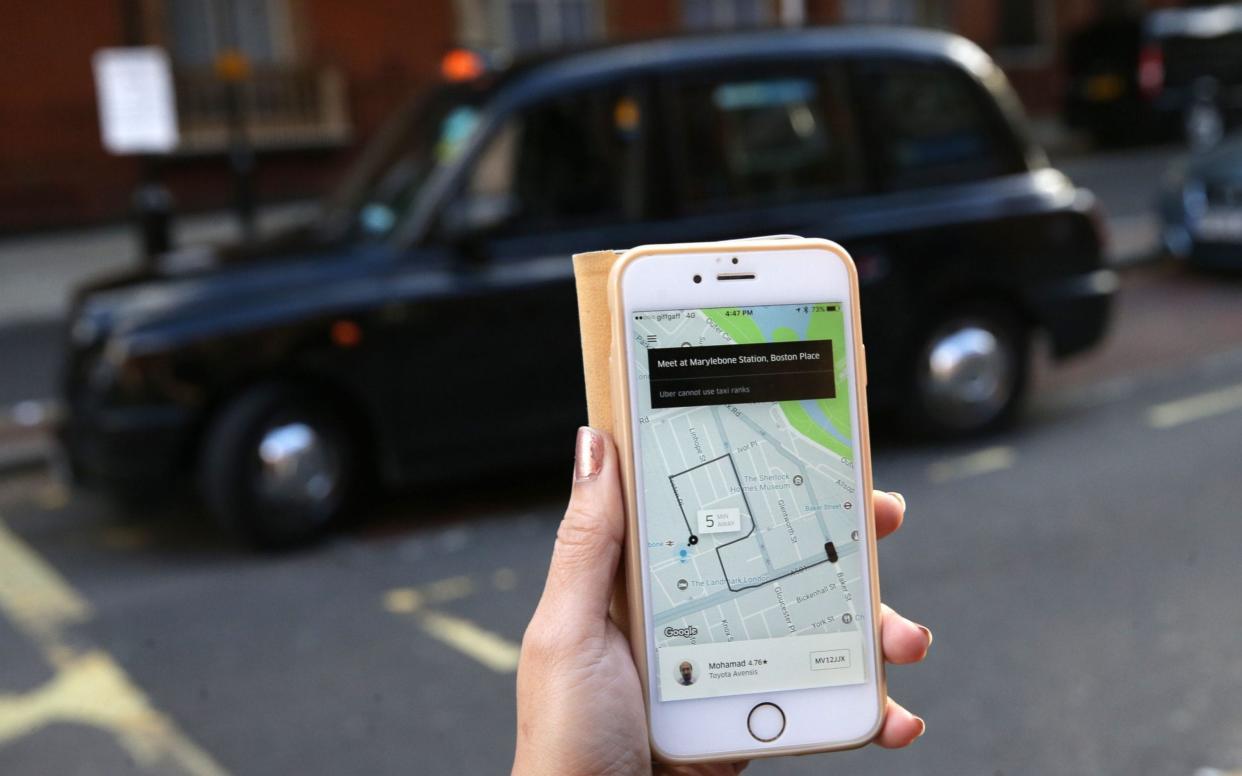Uber wins appeal against London ban despite ‘historical failings’

Uber has won the right to stay open in London following a near three-year legal battle with transport authorities, after a court ruled that “historical failings” should not force it to shut.
Bosses at the online taxi titan have successfully challenged a decision by Transport for London (TfL) not to renew its operating licence over safety concerns involving imposter drivers.
The company - which has 3.5 million customers and 45,000 drivers in the British capital - has now been granted an 18-month licence following a decision at Westminster Magistrates Court. A TfL private hire operator's licence can typically last for up to five years.
In his ruling, deputy senior district judge Tan Ikram said that Uber is fit and proper to hold an operator’s licence.
Mr Ikram said he took into account the company’s overall track record as well as the number of regulatory breaches by Uber, and added that that public confidence in the licensing regime is a “clear consideration”.
In a summary of his conclusions, he wrote: “Some breaches in themselves are just so serious that their mere occurrence is evidence that the operator is not fit and proper to hold a licence.
“I do not find this to be one of those cases.”
Mr Ikram also said that he did not find any evidence to support previous allegations that Uber had covered up the photo fraud issue, where fake images were uploaded by drivers amid a wave of identity rule breaches on at least 14,000 trips between late 2018 and early 2019.
The presiding judge did say that he wanted to hear from advocates regarding the conditions and length associated with Uber’s new licence.
TfL stripped Uber of its licence for a second time last year, having first denied the US giant’s application for a renewal in 2017.
The transport authority had outlined a “pattern of failures” around how the company operated in London. TfL said that the company had lost its licence because it had put “passenger safety and security at risk”.
Among TfL’s biggest concerns was the phenomenon of account sharing, where drivers shared the same account and car - meaning the person who picked up a passenger was not necessarily the same as the driver listed on the app.
Steve McNamara, the general secretary of the Licensed Taxi Drivers’ Association, an interested party in the case, said that the decision was a “disaster for London”.
He said: “Uber has demonstrated time and time again that it simply can’t be trusted to put the safety of Londoners, its drivers and other road users above profit.
“Sadly, it seems that Uber is too big to regulate effectively, but too big to fail.”
The App Drivers & Couriers Union (ACDU) said that lessons must be learned from the scandal.
Yaseen Aslam, president, said: “It is time for the Mayor of London to break up the Uber monopoly by limiting the number of drivers allowed to register on the Uber platform.
“The reduced scale will give both Uber and Transport for London the breathing space necessary to ensure all compliance obligations – including worker rights - are met in future.”
The victory comes at a critical time for Uber, which has suffered a more than 50pc slump in worldwide journeys during lockdowns around the globe.
Boss Dara Khosrowshahi described TfL’s decision to revoke its licence as “extraordinary and wrong” following an initial ruling to revoke last November.
At the time, TfL highlighted concerns around how dismissed or suspended drivers could create a new account and carry passengers again.
Uber introduced a range of safety improvements in the run-up to the appeal, including a “trusted contacts” option that allowed friends and family to track a passenger's journey in real time.
Uber also introduced an energy assistance button that calls authorities directly from the app.
The legal victory in a lucrative European market will help Uber as it struggles to turn a profit. The company posted a $1.8bn (£1.4bn) loss in the latest quarter, raising doubts that it can meet its goal of becoming profitable by 2021.
Shares rose 3.6pc in the US after the ruling.

 Yahoo News
Yahoo News 
